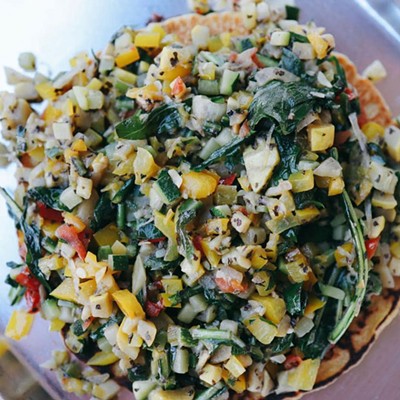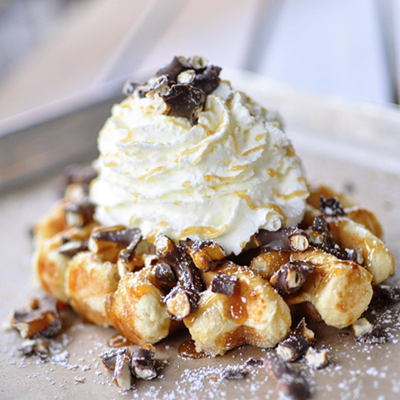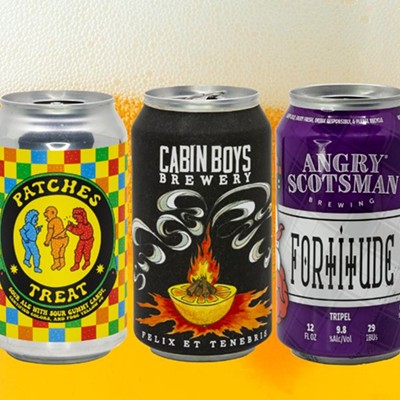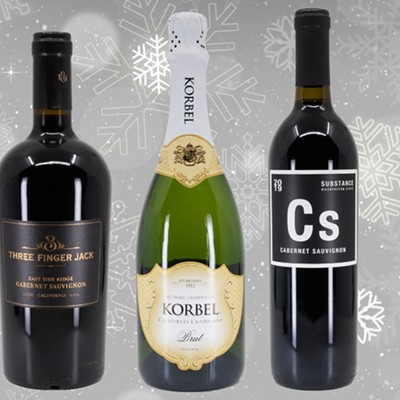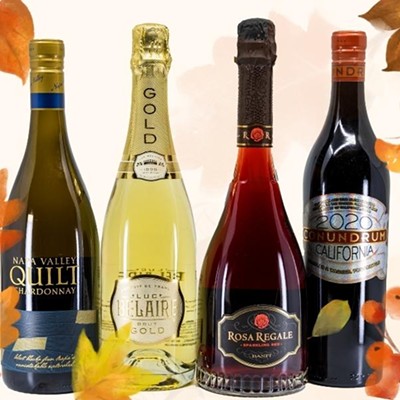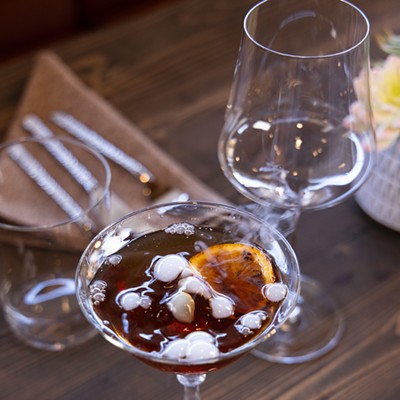Owner/chef Yong Rucker left and daughter Sune Hawkins hold bowls of fried rice and beef bibimbap at Jeon Ju Korean Restaurant in Del City.
When I first tasted the Jeon Ju Korean food at the Girlie Show in November, I instantly knew it was something special.
The popular and crowded booth at the annual Oklahoma City art show was serving simple but sumptuous Korean home-style cuisine, like the appetizer-sized beef bulgogi and mini mandus, or dumplings.
I recently visited Jeon Ju with a friend, and the food was every bit as good as I remembered from that brief encounter.
Don’t be put off by the too-full parking lot on a Wednesday night or the sparse decorations in the restaurant, which quietly serves great food on the south end of the Sooner Market Mall strip center, just south of Reno Avenue.
The general feeling among the Korean/American family behind Jeon Ju is that the food speaks for itself, which speaks to the decor.
Jeon Ju has become a popular stop with Tinker Air Force Base employees, which is a lunch and early evening crowd. When my friend, prepared to enjoy Korean food for the first time, and I arrived at about 7:30 p.m., the restaurant had just cleared out from the dinner rush, which starts at about 4:30 p.m. or so.
We were greeted by Sune Hawkins, one of owner/chef Yong Rucker’s five daughters.
Almost immediately, six little dishes holding tiny samplings of Korean favorites arrived at our table, including kimchi, daikon kimchi, marinated bean sprouts, julienned carrot and daikon radish, and vegetables and potatoes in an intriguing smoky-tasting cold broth. It was a light and a fun beginning.
For starters, we ordered the yaki mandu ($4.99,) six crispy, but tender meat and cabbage dumplings with tofu and mung bean sprouts, and the seafood pajeon ($8.99), a Korean-style pancake with a slight crunch on the outside, with a smooth and creamy interior punctuated by calamari and shrimp with scallions and peppers.
Since first having Korean food a couple of years ago, I sample it every chance I get. I chose dolsot bibimbap ($9.99), a sizzling stone bowl of steamed rice with bulgogi and a variety of seasonal vegetables, topped with an egg over medium. My dining partner picked fried rice ($6.99).
My favorite part of the dolsot bibimbap is the way the rice gets a transforming golden crunch from the bottom of the stone pot.
We
also each ordered soup or stew in between the appetizer and entrée
course, which may have been a little bit of overkill, due to the
generous portions of the appetizers and entrées.
The rice gets a transforming golden crunch from the bottom of the stone pot.
Leftovers are our friends, however.
I
ordered kimchi soontofu ($7.99), an aromatic delight made with shredded
pork, kimchi and soft tofu and served with white rice. My friend
ordered dinjon chigae ($6.99), a soybean stew with pork, zucchini and
tofu, also served with steamed rice. Either of the soups could have been
a full meal.
Although
chef Yong Rucker is the mastermind of the homestyle Korean recipes made
with fresh ingredients, she is joined by Hawkins and another daughter
Christel, who helps the kitchen run smoothly.
Rucker
met her husband James in South Korea, married and moved to the United
States in 1970. The couple raised five daughters in Midwest City, but
the young women scattered, mostly to the East Coast, with some moving to
New York and Chicago.
As
the daughters flew the nest, the more they missed their mother’s
cooking, which encompassed everything from Korean to American
country-style cooking to please her husband. They began to work on
talking their mother into opening a restaurant to fix a problem they see
with many Korean restaurants in the U.S., that they’re too
“Americanized.”
The pressure from the five girls must have made a difference, and Jeon Ju opened in December 2009.
“We’re trying to make people aware of Korean food,” Hawkins said.


